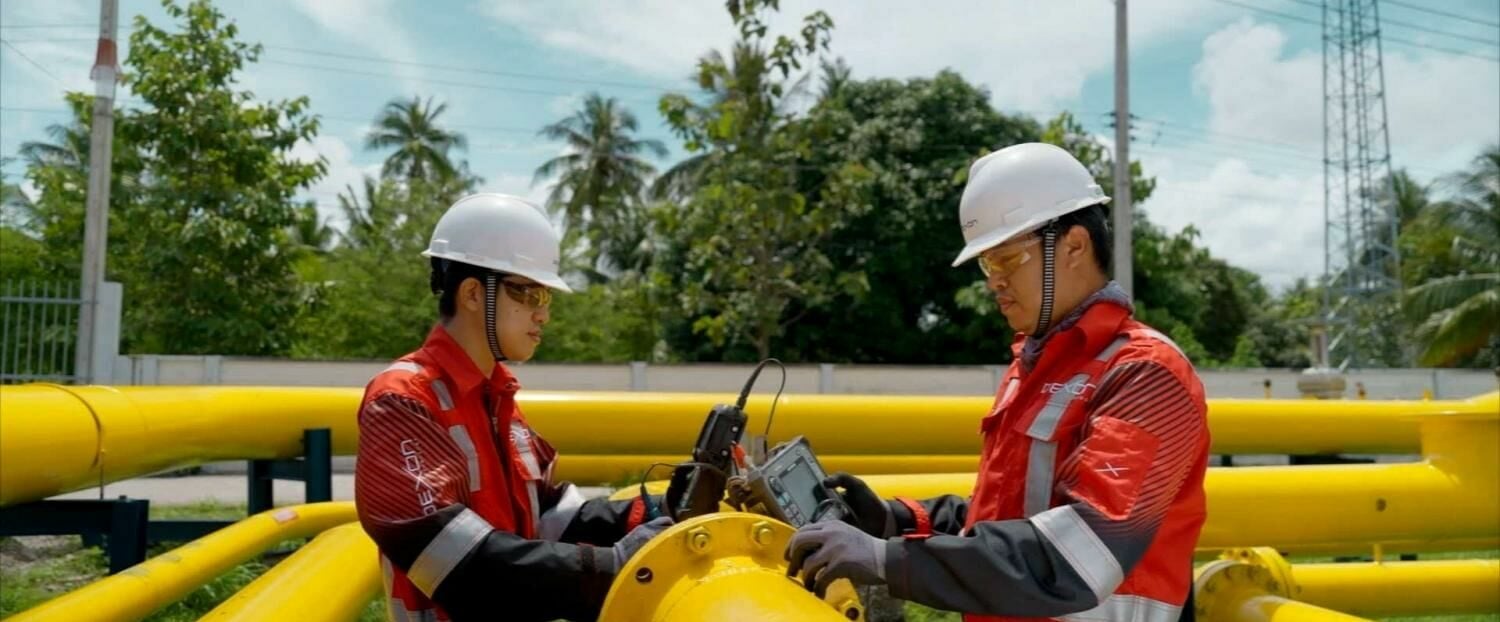Dexon Technology’s overseas expansion strategy amid global recession forecasts

Despite numerous predictions of a potential global economic recession, Dexon Technology’s chief executive Mallika Kaekla is confident that the company’s strategy to expand overseas will help boost revenue this year.
Established in 1996 close to the Map Ta Phut industrial estate in Rayong province, Dexon Technology originally provided engineering inspection services for the energy and petrochemical sectors, ensuring efficiency and safety in pipeline systems and offshore petroleum production pipelines, also known as risers.
“Our core business involves examinations of crude oil and natural gas pipelines, as well as water and chemical storage tanks,” Kaekla, 42 years old, explained. “Our company also develops innovative technology utilised for inspecting structures and production equipment across various industries.”
Dexon utilises a testing method referred to as non-destructive testing (NDT), a technique for inspecting and evaluating materials, components, or assemblies without compromising their serviceability, according to the American Society for Nondestructive Testing. The company primarily relies on two types of NDT: conventional non-destructive testing (CNDT), which combines examining equipment with inspectors’ analysis, and advanced non-destructive testing, which uses software to provide 2D and 3D simulations of inspection results, including rope routing techniques to access hard-to-reach inspection points.
“Advanced inline inspection is the technique used for examining pipelines and is also the main source of our income,” Kaekla stated, adding that 65% of the company’s revenue comes from the domestic market and 35% from abroad.
Kaekla believes that Dexon is unlikely to be affected by the output reduction agreed upon by the OPEC+ group of oil-exporting countries since global demand for equipment and pipeline inspection is expected to grow steadily. According to Fortune Business Insights data, the global Pipeline Integrity Management market size reached US$8.65 billion in 2020 while North America accounted for US$5.42 billion. The worldwide market is projected to grow from US$8.80 billion in 2021 to US$11.2 billion by 2028 at a compound annual growth rate of 3.6% between 2021 and 2028.
Kaekla noted that Dexon is in the process of expanding its business in the US and Europe, where it has a registered subsidiary company in the Netherlands. The company recently listed on the Market for Alternative Investment to raise over 550 million baht in new capital, with about 120 million baht earmarked for overseas expansion.
Dexon expects its revenue to grow by 15-20% in 2023, with its international expansion increasing its income to 750 million baht, up from 610 million baht reported last year.
“Due to consistently high market demand, our quarterly performance growth this year continues to improve as anticipated,” Kaekla commented.
Furthermore, Dexon plans to extend its inspection services to green-energy sectors, capitalising on the company’s technology and developing new solutions to fulfil global demand, particularly in the US, where the conversion of renewables like hydrogen leads to more technical challenges in pipelines compared to carbon or gasoline.
The International Energy Agency’s World Energy Outlook forecasts that oil demand will continue to decline between 2030 and 2040, with coal demand dropping further in 2025 due to the transition toward clean energy and reductions in greenhouse gas emissions.
Kaekla stated, “We have state-of-the-art technology that can meet the needs of our existing customer base in both Thailand and foreign markets. Our technology’s ongoing development will be able to support the company’s growth in the future,” reports Bangkok Post.
Latest Thailand News
Follow The Thaiger on Google News:


























